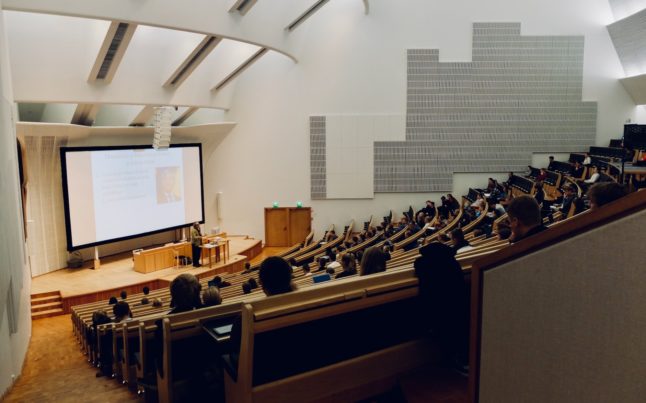Under the current rules, any students who don’t come from the European Union, or Norway, Iceland or Liechtenstein (EFTA) must return to their home countries after finishing their studies.
That’s because third-country foreigners are subject to quotas, the number of which is restricted, and set on annual basis depending on the needs of Switzerland’s economy.
This means that in 2024, up to 8,500 skilled workers can again be recruited from third countries: 4,500 will get a B residence permit, and 4,000 a short-term L permit.
UK citizens are eligible for separate quotas as part of a transitional post-Brexit arrangement: 2,100 B and 1,400 L permits are set aside just for them.
Non-EU / EFTA graduates would fall under this quota, along with ‘regular’ workers from these countries.
However, in March, 2023 MPs voted to allow these foreign students to stay on in Switzerland and work after they graduate, provided they obtain their degrees in fields that are needed — but are in short supply — in the labour market.
But the project had hit a roadblock in September last year, when MPs realised no legal basis exists to allow foreigners subject to quotas to live in Switzerland indefinitely, on the same basis as their EU /EFTA counterparts.
Therefore, exemption clauses for third country nationals who graduate from Swiss universities with in-demand skills must be created before progress can be made on this issue.
READ ALSO: Why has the move to let non-EU graduates stay in Switzerland stalled?
What is the status of this project now?
The issue has been debated again during the current (winter) parliamentary session.
In December, the National Council decided that it is up to the Federal Council to tackle this problem from the constitutional point of view.
The chances of success are promising though.
According to the Justice Minister Elisabeth Baume-Schneider, exemptions from the quota system could be granted to some qualifying non-EU graduates.
That’s because such exemptions are compatible with Article 121a of the Constitution on quotas — as long as the number of people concerned is limited.
As things stand currently, the political will to resolve this issue is gaining momentum, and it is just a matter of time before a legal basis to allow some foreign graduates to work in Switzerland is created.



 Please whitelist us to continue reading.
Please whitelist us to continue reading.
Member comments